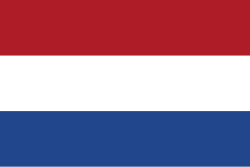| Netherlands at the 1964 Winter Olympics | |
|---|---|
 | |
| IOC code | NED |
| NOC | Dutch Olympic Committee |
| in Innsbruck | |
| Competitors | 6 (4 men, 2 women) in 2 sports |
| Flag bearer | Ard Schenk (speedskating) |
| Medals |
|
| Winter Olympics appearances (overview) | |
Athletes from the Netherlands competed at the 1964 Winter Olympics in Innsbruck, Austria.